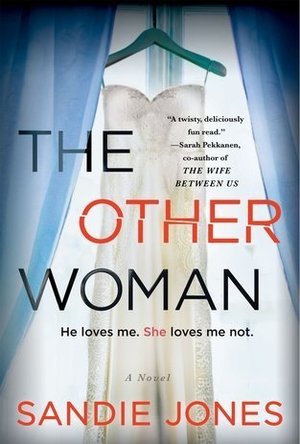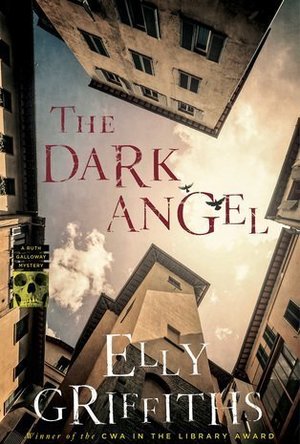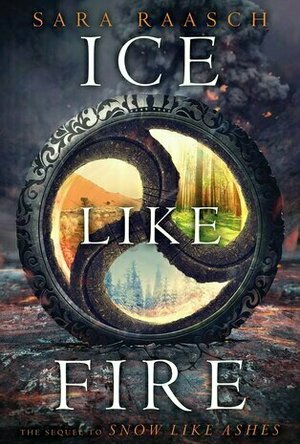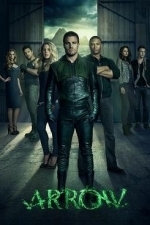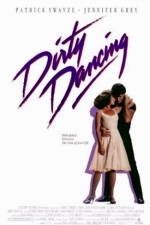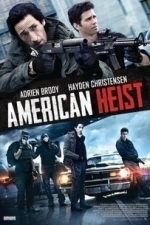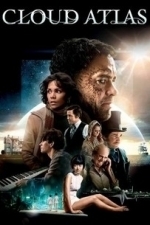Search
Search results

Thimbleweed Park
Games and Entertainment
App
A brand new adventure game from Ron Gilbert and Gary Winnick, creators of the classics Monkey Island...
FilmIntuition (33 KP) rated The Other Woman in Books
Aug 21, 2018
A thrillingly fast-paced read from Sandie Jones, The Other Woman finds her novel's hardworking, unlucky-in-love British heroine Emily unwittingly (and very quickly) caught up in an escalating game of psychological chicken with her boyfriend's mother Pammie that unfortunately, her boyfriend and the rest of the world is unable to see.
Sure to be a popular late summer beach read, while it suffers from a few gaps in logic and common sense as our lead character never thinks to use technology to snap a photo, record a threat as evidence, or merely research one of two sketchy backstories involving both her boyfriend as well as Pammie, as a journalist, Jones knows how to assemble a compelling story.
Although it raises a valid concern regarding how much we change and/ore are willing to take when we're in a committed relationship, because more than a few people in Pammie's orbit suffer from serious likability issues, I kept wanting to yell at the fictional Emily as though she were on the other end of the phone, “honey, just leave already!”
Nonetheless still able to reel me back in and (mostly) suspend my disbelief, as I grew closer to the final Emily vs. Pammie standoff, I found myself walking around with the book in hand, waiting to see what Jones had in store for the finale.
Needing to reveal, explain, and wrap-up everything in a very rushed showdown that perhaps involves way too much spoken exposition, while that device has been used so often in books and film that it's easy to overlook, one of Woman's biggest hurdles isn't in the book at all but on the cover.
A vital reminder for publishers to be careful as to which blurbs you include on the book itself, because my Advanced Reader Copy arrived complete with a quotation advertising “a twist you will not see coming,” readers (like yours truly) are sure to find their brains working overtime to the point that I was able to correctly deduce where Jones might be going roughly halfway through.
Of course it's still an incredibly fun read and I didn't have all of the nuts and bolts of said twist squared away to the point that it ruined everything. All the same and regardless of the fact that all of these genre titles have twists, I would've loved it even more if I'd never been tipped off that there was something that far out of left field for which to look.
Even so an impressive debut that I thank Minotaur Books for sending me, The Other Woman might make you uneasy to meet your new love's parents but it'll definitely excite you to imagine what new novels and twists Jones might have up her sleeve.
Sure to be a popular late summer beach read, while it suffers from a few gaps in logic and common sense as our lead character never thinks to use technology to snap a photo, record a threat as evidence, or merely research one of two sketchy backstories involving both her boyfriend as well as Pammie, as a journalist, Jones knows how to assemble a compelling story.
Although it raises a valid concern regarding how much we change and/ore are willing to take when we're in a committed relationship, because more than a few people in Pammie's orbit suffer from serious likability issues, I kept wanting to yell at the fictional Emily as though she were on the other end of the phone, “honey, just leave already!”
Nonetheless still able to reel me back in and (mostly) suspend my disbelief, as I grew closer to the final Emily vs. Pammie standoff, I found myself walking around with the book in hand, waiting to see what Jones had in store for the finale.
Needing to reveal, explain, and wrap-up everything in a very rushed showdown that perhaps involves way too much spoken exposition, while that device has been used so often in books and film that it's easy to overlook, one of Woman's biggest hurdles isn't in the book at all but on the cover.
A vital reminder for publishers to be careful as to which blurbs you include on the book itself, because my Advanced Reader Copy arrived complete with a quotation advertising “a twist you will not see coming,” readers (like yours truly) are sure to find their brains working overtime to the point that I was able to correctly deduce where Jones might be going roughly halfway through.
Of course it's still an incredibly fun read and I didn't have all of the nuts and bolts of said twist squared away to the point that it ruined everything. All the same and regardless of the fact that all of these genre titles have twists, I would've loved it even more if I'd never been tipped off that there was something that far out of left field for which to look.
Even so an impressive debut that I thank Minotaur Books for sending me, The Other Woman might make you uneasy to meet your new love's parents but it'll definitely excite you to imagine what new novels and twists Jones might have up her sleeve.
Kristy H (1252 KP) rated The Dark Angel in Books
May 15, 2018
Another winning mystery from Griffiths
Ruth is dealing with a lot on the personal front, including the fact that Nelson's wife, Michelle, is pregnant. Ruth and Nelson's daughter, Kate, is six now, and while Michelle knows about Kate, Nelson's older daughters do not. Nelson was very close to leaving Michelle for Ruth, before he found out his wife was pregnant again. So when Ruth is invited to Italy to assist a former friend, Angelo Morelli, in looking at some bones, she is actually a bit excited at the thought of a holiday/work trip. It will give her and Kate a chance to get away. They embark on the trip along with Ruth's friend Shona and her son, Louis. Once there, Ruth realizes how entrenched the people of the Italian village are in the past--including what happened during World War II. Further, Angelo is convinced someone is trying to kill him. Before she knows it, Ruth is immersed in a modern-day murder mystery: something she can't seem to avoid, no matter where she travels.
It's no secret that I love Ruth and Elly Griffiths' series of novels featuring our intelligent, plucky heroine. Despite the fact that I know absolutely nothing about bones, I identify with her (e.g., stepping on a plane with Kate for the first time and feeling nervous flying with her daughter, whose safety "overrides everything else"). Ruth's wit, sarcasm, and sense of humor are always absolutely spot-on, and it's wonderful being back with her and her circle of pals, especially the grumpy yet protective Nelson. The Nelson/Ruth dynamic is its typically complicated yet oddly sweet self, and there's a surprising amount of progress or information regarding the characters' personal lives in this novel.
As mentioned, these books are always just lovely and humorous. The narration style is impeccable and works flawlessly. Each character is so perfectly "them," and I enjoyed that we heard from a lot of characters this time around, even Nelson's elder daughter. Oh, and yes, there's also a great mystery plot thrown in, involving an Italian town, some bones (of course), and a variety of deeply buried secrets. Griffiths introduced us to some new characters with the new locale, and I found the mystery to be interesting and engaging. It was front and center enough to keep us interested, but refreshing to get a little more movement on the characters' personal lives, too.
Overall, another winner from Griffiths. As always, I cannot wait for the next Ruth novel (especially because there is some serious unresolved business by the end of this one!). I think of Ruth, Harry, Kate, and the entire cast as dear friends by now. You can read this as a stand-alone, but as always, I recommend reading the whole series, because it's just so darn good.
A huge thanks to the publisher and Edelweiss for a copy of this novel in return for an unbiased review.
It's no secret that I love Ruth and Elly Griffiths' series of novels featuring our intelligent, plucky heroine. Despite the fact that I know absolutely nothing about bones, I identify with her (e.g., stepping on a plane with Kate for the first time and feeling nervous flying with her daughter, whose safety "overrides everything else"). Ruth's wit, sarcasm, and sense of humor are always absolutely spot-on, and it's wonderful being back with her and her circle of pals, especially the grumpy yet protective Nelson. The Nelson/Ruth dynamic is its typically complicated yet oddly sweet self, and there's a surprising amount of progress or information regarding the characters' personal lives in this novel.
As mentioned, these books are always just lovely and humorous. The narration style is impeccable and works flawlessly. Each character is so perfectly "them," and I enjoyed that we heard from a lot of characters this time around, even Nelson's elder daughter. Oh, and yes, there's also a great mystery plot thrown in, involving an Italian town, some bones (of course), and a variety of deeply buried secrets. Griffiths introduced us to some new characters with the new locale, and I found the mystery to be interesting and engaging. It was front and center enough to keep us interested, but refreshing to get a little more movement on the characters' personal lives, too.
Overall, another winner from Griffiths. As always, I cannot wait for the next Ruth novel (especially because there is some serious unresolved business by the end of this one!). I think of Ruth, Harry, Kate, and the entire cast as dear friends by now. You can read this as a stand-alone, but as always, I recommend reading the whole series, because it's just so darn good.
A huge thanks to the publisher and Edelweiss for a copy of this novel in return for an unbiased review.
Sophia (Bookwyrming Thoughts) (530 KP) rated Ice Like Fire (Snow Like Ashes, #2) in Books
Jan 23, 2020
I don't know what to say about this one. (Aside from the fact the author is just another evil writing spawn...)
Anyways. Let's get this up and out of the way: I enjoyed <i><a title="Snow Like Ashes review" href="http://www.bookwyrmingthoughts.com/2015/04/review-snow-like-ashes-by-sara-raasch.html"; target="_blank" rel="noopener tag">Snow Like Ashes</a></i> much much better than <i>Ice Like Fire</i>. In fact, it would have been <i>great</i> as a stand alone novel as well, aside from the fact it would be an open-ended ending that would probably just demand a series in the end.
<i>Ice Like Fire</i> is basically a reconstruction phrase for the Winterians, who are recovering from the harsh conditions of their work camps in Spring (or maybe another kingdom). Under Cordell's orders (and because Winter is in debt to the kingdom for their assistance in getting rid of Angra), the Winterians are mining and searching for the origins of the conduits, and the source of powerful magic. When they find the magic chasm, everyone has different viewpoints: Theron wants to open the chasm and unite the world, Meira wants to keep the chasm closed and answers, and Mather just wants the Winterians to be free.
And to hopefully accomplish all of that and gain allies, Meira and Theron set off on a journey to the other kingdoms, primarily Summer, Yakim, and Ventralli. If you ask me, nothing terribly action packed is going on in this sequel unless visiting kingdoms and seeing their traditions in action is considered "action."
But let's talk about this love triangle established from <i>Snow Like Ashes</i> and continuing with <i>Ice Like Fire</i>. Mather is compassionate and loyal and quotable, and Theron makes fantastic comments and has big dreams for the kingdoms. Both with good intentions and not exactly considered annoying thus far. I haven't actually made any progress with this love triangle – not when it comes to going with one side or another.
Ultimately, though, stay away from <i>Ice Like Fire</i>. The first book is more enjoyable, but the second book will leave readers wanting closure that won't actually happen until later on this year.
<a href="https://bookwyrmingthoughts.com/chibi-views-touch-jennifer-snyder-ice-like-fire-sara-raasch/"; target="_blank">This review was originally posted on Bookwyrming Thoughts</a>
Anyways. Let's get this up and out of the way: I enjoyed <i><a title="Snow Like Ashes review" href="http://www.bookwyrmingthoughts.com/2015/04/review-snow-like-ashes-by-sara-raasch.html"; target="_blank" rel="noopener tag">Snow Like Ashes</a></i> much much better than <i>Ice Like Fire</i>. In fact, it would have been <i>great</i> as a stand alone novel as well, aside from the fact it would be an open-ended ending that would probably just demand a series in the end.
<i>Ice Like Fire</i> is basically a reconstruction phrase for the Winterians, who are recovering from the harsh conditions of their work camps in Spring (or maybe another kingdom). Under Cordell's orders (and because Winter is in debt to the kingdom for their assistance in getting rid of Angra), the Winterians are mining and searching for the origins of the conduits, and the source of powerful magic. When they find the magic chasm, everyone has different viewpoints: Theron wants to open the chasm and unite the world, Meira wants to keep the chasm closed and answers, and Mather just wants the Winterians to be free.
And to hopefully accomplish all of that and gain allies, Meira and Theron set off on a journey to the other kingdoms, primarily Summer, Yakim, and Ventralli. If you ask me, nothing terribly action packed is going on in this sequel unless visiting kingdoms and seeing their traditions in action is considered "action."
But let's talk about this love triangle established from <i>Snow Like Ashes</i> and continuing with <i>Ice Like Fire</i>. Mather is compassionate and loyal and quotable, and Theron makes fantastic comments and has big dreams for the kingdoms. Both with good intentions and not exactly considered annoying thus far. I haven't actually made any progress with this love triangle – not when it comes to going with one side or another.
Ultimately, though, stay away from <i>Ice Like Fire</i>. The first book is more enjoyable, but the second book will leave readers wanting closure that won't actually happen until later on this year.
<a href="https://bookwyrmingthoughts.com/chibi-views-touch-jennifer-snyder-ice-like-fire-sara-raasch/"; target="_blank">This review was originally posted on Bookwyrming Thoughts</a>
Connor Sheffield (293 KP) rated Arrow in TV
May 13, 2018
Closer to the comics than people think (5 more)
Great cast
Intriguing characters
Brilliant character development
Great drama
Great references to the comics
Some characters become annoying (1 more)
Not all seasons are consistent with quality
You Have (not) failed this series!
First of all I should tell you that Green Arrow is my all time favourite comic character so this review might have some bias but I'll keep it to a minimum because I am not blinded by this shows faults of which it's had quite a few.
When I first saw the trailer for Arrow I was hooked. Finally, a show about Green Arrow, one of the less popular heroes these days and one of the many heroes that makes the people who only watch comic book films, say "Who the hell is that?".
Series one had me hooked with great drama, and incredible action that made the week long wait for each episode painful. The drama was intense as we watch Oliver Queen trying to juggle his two lives as both Oliver Queen and Arrow (currently called the Vigilante or The Hood during season 1), as he tries to keep his night time activities as a vigilante a secret.
The faults of this series reside in some of the dialogue and characters who I won't name because it's not really down to one particular character as others do the same though some get more blame than others. The point is, some of the drama in the show is unnecessary and sometimes it's all over the place going from "I love you" to "never talk to me again" within seconds for very stupid reasons. If you can get past that though, you'll see a lot more of Green Arrow in the show than you realise.
One of the main things I love about this show is seeing Oliver Queen take on real life issues as well as comic book villains. Issues such as his sister taking drugs which, due to her childhood nickname being 'Speedy', is a reference to Green Lantern/Green Arrow #85 and #86 where Green Arrow finds out that Roy Harper is a drug addict. By making the series version about his sister however, makes the situation more personal which means it messes with Olivers head when he's out hunting the drug suppliers.
The villains have all been great in the series, even though not all have been praised. Malcom Merlyn as the first villain was a good choice because he's one of the few original Green Arrow Villains from comics and John Barrowman was a brilliant choice of casting. Deathstroke then took it up a notch and really made the series great, and his season is possibly still one of the best seasons (season 2). Ras Al Ghul was a very intense series and although everyone moaned that Arrow had become too much like Batman, but Arrow made it their own and made a brilliantly intense series with some great twists that at the time I was like "please don't end it like this...." Or... "Where do they go from here?" And Everytime I thought they might have made a mistake with a certain plot point, they proved me wrong.
Damien Darkh was probably one of the lesser great villains. The casting was perfect, because Damien Darkh was so menacing and so brilliantly evil with a human side to him at certain points, but I don't think personally, they should have brought magic into Arrow, because it added too many scenes where you thought "why would you even try this?" Or "why did he not do this and this moment". But unlike many I actually enjoyed Damien Darkh as a villain because the characters and intense story were brilliantly chosen and executed.
The last two seasons (5 & 6) have been really intense and incredibly action packed as Green Arrow and Team Arrow try to take on what feels like the world.
The downfalls of the series include some of the drama being not entirely necessary. We understand as an audience that tensions build and everyone has a thousand and one problems that they have to deal with, but everyone seems to unleash them all at once. I understand wanting to build the feeling that everything is falling apart, but it happens soooo much, and it's hard to sympathise with certain scenarios because of it.
Another slight issue is the love interests. If you know Green Arrow, then you know he's a bit of a ladies man and that he can often be caught flirting and more with many women, in the show, we see this done well but at the end of the day it aaaallllwaayyyss comes back to Olicity. Oliver and Felicity's love story has had so many ups and downs and they've fallen in and out of love so many times and whilst I love Felicity as a character and a member of the team, the love rollercoaster she is on with Oliver reaaalllyyy annoys me at times, but I try to look past it and everything's seems to be okay.
Overall though this is one of my favourite shows and I prefer it to The Flash though The Flash has had some better seasons than Arrow has. I can't wait to see what else the show brings to the screen as it has already brought many obscure characters such as Cupid, Vigilante, Prometheus, Bronze Tiger and more!
When I first saw the trailer for Arrow I was hooked. Finally, a show about Green Arrow, one of the less popular heroes these days and one of the many heroes that makes the people who only watch comic book films, say "Who the hell is that?".
Series one had me hooked with great drama, and incredible action that made the week long wait for each episode painful. The drama was intense as we watch Oliver Queen trying to juggle his two lives as both Oliver Queen and Arrow (currently called the Vigilante or The Hood during season 1), as he tries to keep his night time activities as a vigilante a secret.
The faults of this series reside in some of the dialogue and characters who I won't name because it's not really down to one particular character as others do the same though some get more blame than others. The point is, some of the drama in the show is unnecessary and sometimes it's all over the place going from "I love you" to "never talk to me again" within seconds for very stupid reasons. If you can get past that though, you'll see a lot more of Green Arrow in the show than you realise.
One of the main things I love about this show is seeing Oliver Queen take on real life issues as well as comic book villains. Issues such as his sister taking drugs which, due to her childhood nickname being 'Speedy', is a reference to Green Lantern/Green Arrow #85 and #86 where Green Arrow finds out that Roy Harper is a drug addict. By making the series version about his sister however, makes the situation more personal which means it messes with Olivers head when he's out hunting the drug suppliers.
The villains have all been great in the series, even though not all have been praised. Malcom Merlyn as the first villain was a good choice because he's one of the few original Green Arrow Villains from comics and John Barrowman was a brilliant choice of casting. Deathstroke then took it up a notch and really made the series great, and his season is possibly still one of the best seasons (season 2). Ras Al Ghul was a very intense series and although everyone moaned that Arrow had become too much like Batman, but Arrow made it their own and made a brilliantly intense series with some great twists that at the time I was like "please don't end it like this...." Or... "Where do they go from here?" And Everytime I thought they might have made a mistake with a certain plot point, they proved me wrong.
Damien Darkh was probably one of the lesser great villains. The casting was perfect, because Damien Darkh was so menacing and so brilliantly evil with a human side to him at certain points, but I don't think personally, they should have brought magic into Arrow, because it added too many scenes where you thought "why would you even try this?" Or "why did he not do this and this moment". But unlike many I actually enjoyed Damien Darkh as a villain because the characters and intense story were brilliantly chosen and executed.
The last two seasons (5 & 6) have been really intense and incredibly action packed as Green Arrow and Team Arrow try to take on what feels like the world.
The downfalls of the series include some of the drama being not entirely necessary. We understand as an audience that tensions build and everyone has a thousand and one problems that they have to deal with, but everyone seems to unleash them all at once. I understand wanting to build the feeling that everything is falling apart, but it happens soooo much, and it's hard to sympathise with certain scenarios because of it.
Another slight issue is the love interests. If you know Green Arrow, then you know he's a bit of a ladies man and that he can often be caught flirting and more with many women, in the show, we see this done well but at the end of the day it aaaallllwaayyyss comes back to Olicity. Oliver and Felicity's love story has had so many ups and downs and they've fallen in and out of love so many times and whilst I love Felicity as a character and a member of the team, the love rollercoaster she is on with Oliver reaaalllyyy annoys me at times, but I try to look past it and everything's seems to be okay.
Overall though this is one of my favourite shows and I prefer it to The Flash though The Flash has had some better seasons than Arrow has. I can't wait to see what else the show brings to the screen as it has already brought many obscure characters such as Cupid, Vigilante, Prometheus, Bronze Tiger and more!
Phillip McSween (751 KP) rated Dirty Dancing (1987) in Movies
Jul 4, 2020
A Movie Packed With Memorable Moments
During a summer vacation in the Catskills, a young woman is introduced to the sensual world of dirty dancing and her life is forever changed. Seriously, I should apply for a job writing loglines.
Acting: 10
No the acting wasn’t the best around, but it gets the job done. Jennifer Grey and Patrick Swayze are electric on screen together. This movie clearly has no shot without their chemistry. I have to give an honorable mention to Jerry Orbach playing the role of Dr. Jake Houseman. He’s an overprotective father that just wants to see his kids have a good time on vacation. He has a couple of pretty heavy scenes that leave an impact on the movie.
Beginning: 10
Characters: 10.
Cinematography/Visuals: 8
So my mom is a single parent which meant I went with her pretty much everywhere, including the movies. I remember her taking me to see this movie. I didn’t understand that first dance when Baby walked into the workers clubhouse, but I knew it was something my young eyes shouldn’t have been looking at. I appreciate the way director Emile Ardolino captures that raw sensuality. I also loved how the disparity between the rich vacationers and the lower class workers was displayed. It sets up the movie well and remains a constant theme throughout.
Conflict: 9
Entertainment Value: 7
Like a Fast and Furious movie, there is something undeniable about Dirty Dancing. You find yourself entranced when you should be saying, “This is extremely corny.” Sure there are some campier moments that are just ripped from a Hallmark movie, but overall the movie has a definite flare that keeps you entertained from beginning to end.
Memorability: 9
Pace: 9
Plot: 9
Resolution: 10
Overall: 89
Back to that dance scene I mentioned earlier. It happens pretty quickly into the movie, about fifteen minutes in. In two minutes that scene accomplishes more for eroticism than the entire Fifty Shades franchise. Just like the movie, it bleeds passion. Dirty Dancing is a testament that you don’t need hundreds of millions of dollars to make a decent film.
Acting: 10
No the acting wasn’t the best around, but it gets the job done. Jennifer Grey and Patrick Swayze are electric on screen together. This movie clearly has no shot without their chemistry. I have to give an honorable mention to Jerry Orbach playing the role of Dr. Jake Houseman. He’s an overprotective father that just wants to see his kids have a good time on vacation. He has a couple of pretty heavy scenes that leave an impact on the movie.
Beginning: 10
Characters: 10.
Cinematography/Visuals: 8
So my mom is a single parent which meant I went with her pretty much everywhere, including the movies. I remember her taking me to see this movie. I didn’t understand that first dance when Baby walked into the workers clubhouse, but I knew it was something my young eyes shouldn’t have been looking at. I appreciate the way director Emile Ardolino captures that raw sensuality. I also loved how the disparity between the rich vacationers and the lower class workers was displayed. It sets up the movie well and remains a constant theme throughout.
Conflict: 9
Entertainment Value: 7
Like a Fast and Furious movie, there is something undeniable about Dirty Dancing. You find yourself entranced when you should be saying, “This is extremely corny.” Sure there are some campier moments that are just ripped from a Hallmark movie, but overall the movie has a definite flare that keeps you entertained from beginning to end.
Memorability: 9
Pace: 9
Plot: 9
Resolution: 10
Overall: 89
Back to that dance scene I mentioned earlier. It happens pretty quickly into the movie, about fifteen minutes in. In two minutes that scene accomplishes more for eroticism than the entire Fifty Shades franchise. Just like the movie, it bleeds passion. Dirty Dancing is a testament that you don’t need hundreds of millions of dollars to make a decent film.
Darren (1599 KP) rated American Heist (2015) in Movies
Jun 20, 2019
Story: American Heist starts with James (Christensen) waiting before starting to look for someone then an explosion surprises him bring us back a day in time where we follow James going about his everyday life. James has a brother Frankie (Brody) fresh out of prison being picked up by his criminal connection Sugar (Akon) who keeps him happy with drinks, drugs and girls on his first night out before meeting the boss Ray (Kittles).
James has turned his life around where he now works on the straight life working as a mechanic, he sees an old flame Emily (Brewster) back in town where James sees his life moving in the right direction. Frankie turns up to see his brother’s life after ten years locked away. Frankie arranges to meet for drinks with James which leads to him discussion a new job opportunity which leads us back to the opening scene where James gets tricked into a job as Frankie is trying to repay his debts.
Ray has assembled a team to pull off an elaborate bank robbery which will finally see Frankie pay back the debts he owes because James has the skills to get part of the plan done.
American Heist is a story that does seem to follow the traditional idea of a recently released from prison criminal goes straight back into the criminal world even if it isn’t fully his desire. We also see how the man thinking he has escaped from the criminal world gets dragged back in for one more job. This side of the story has been done before but is does really push the two brothers on an emotional level. When it comes to the actual heist it does become the secondary story behind the brothers relationship with the preparation being a quick flash scene and like most heist films go completely wrong. The story will have to go down as a solid entry into the genre but won’t be a film climbing into anyone’s best. (7/10)
Actor Review
Hayden Christensen: James is the former criminal who has turned his life around with a clean cut job where he is trying to get his own business, his life may not be perfect but he is happy that everything is all legal now. When his brothers released from prison he ends up caught up trying to pay off Frankie’s debts forced into working for criminal Ray. Hayden continues to try and recover from the criticism he got for Star Wars with another anti pretty boy film where he tries to play tough but doesn’t quite pull it off. (6/10)
james
Adrien Brody: Frankie is James’ brother who fresh out of prisoner does straight back into his criminal underworld where criminal boss Ray wants both Frankie and James to work for him. Frankie went through a lot in prison and always stood up for his brothers, as well as helping him become the man he is now. Adrien gives a performance you would expect from an Oscar winner, he does show his skills but sometimes feels like he is overacting to the situations. (7/10)
frankie
Jordana Brewster: Emily is the old flame who comes back into James’ life. Emily just so happens to be a dispatch caller for the police which could make the bank job all that much harder as Emily and James start rekindling their romance. Jordana does a good job but really doesn’t get enough screen time for the romantic angle in the story. (6/10)
Akon: Sugar is the second in command to Ray who gets the dirty jobs done when other people won’t get involved. Akon does make a good supporting actor never trying to over act like many musicians do when they enter the acting world. (7/10)
Tory Kittles: Ray is the criminal who helped Frankie in prison leaving him being owed a favour from Frankie when he finally gets out. Ray makes Frankie bring James back into the criminal world to take part in an elaborate heist. Tory makes for a good emotionless tough criminal who believes in every word he is saying. (7/10)
Support Cast: American Heist doesn’t really have many more characters involved in the story, we have the generic characters trying to chase down the criminals and the members of the group trying to pull off the heist.
Director Review: Sarik Andreasyan – Sarik gives us a solid heist film that really does focus on the relationship between the two brothers who have gone down different paths but must work together one last time. (7/10)
Action: American Heist keeps the action in a realistic level apart from one moment, making each feel like it could be a real heist and aftermath. (7/10)
Drama: American Heist creates a dysfunctional relationship between the two brothers which helps show just how far they would go for each other. (7/10)
Settings: American Heist keeps the settings in location where you would imagine the characters would want to turn to crime to end all the suffering they are going through. (8/10)
Suggestion: American Heist is one to try, I do think if you are a fan of the genre you will enjoy but there is only so much you can do with a heist film without fully copying anything else. (Try It)
Best Part: I really liked how the film ended, but can’t give it away.
Worst Part: How James gets pulled into the criminal world again.
Action Scene Of The Film: Ray’s escape attempt.
Believability: The heist feels like it could be how a real one would end, but the relationship side mixed with the heist not so. (4/10)
Chances of Tears: No (0/10)
Chances of Sequel: No
Post Credits Scene: No
Similar Too: Kill Point (TV Show)
Oscar Chances: None
Budget: $10 Million
Runtime: 1 Hour 34 Minutes
Overall: American Heist will go down as an emotionally gritty heist film about two brothers.
https://moviesreview101.com/2015/05/26/american-heist-2015/
James has turned his life around where he now works on the straight life working as a mechanic, he sees an old flame Emily (Brewster) back in town where James sees his life moving in the right direction. Frankie turns up to see his brother’s life after ten years locked away. Frankie arranges to meet for drinks with James which leads to him discussion a new job opportunity which leads us back to the opening scene where James gets tricked into a job as Frankie is trying to repay his debts.
Ray has assembled a team to pull off an elaborate bank robbery which will finally see Frankie pay back the debts he owes because James has the skills to get part of the plan done.
American Heist is a story that does seem to follow the traditional idea of a recently released from prison criminal goes straight back into the criminal world even if it isn’t fully his desire. We also see how the man thinking he has escaped from the criminal world gets dragged back in for one more job. This side of the story has been done before but is does really push the two brothers on an emotional level. When it comes to the actual heist it does become the secondary story behind the brothers relationship with the preparation being a quick flash scene and like most heist films go completely wrong. The story will have to go down as a solid entry into the genre but won’t be a film climbing into anyone’s best. (7/10)
Actor Review
Hayden Christensen: James is the former criminal who has turned his life around with a clean cut job where he is trying to get his own business, his life may not be perfect but he is happy that everything is all legal now. When his brothers released from prison he ends up caught up trying to pay off Frankie’s debts forced into working for criminal Ray. Hayden continues to try and recover from the criticism he got for Star Wars with another anti pretty boy film where he tries to play tough but doesn’t quite pull it off. (6/10)
james
Adrien Brody: Frankie is James’ brother who fresh out of prisoner does straight back into his criminal underworld where criminal boss Ray wants both Frankie and James to work for him. Frankie went through a lot in prison and always stood up for his brothers, as well as helping him become the man he is now. Adrien gives a performance you would expect from an Oscar winner, he does show his skills but sometimes feels like he is overacting to the situations. (7/10)
frankie
Jordana Brewster: Emily is the old flame who comes back into James’ life. Emily just so happens to be a dispatch caller for the police which could make the bank job all that much harder as Emily and James start rekindling their romance. Jordana does a good job but really doesn’t get enough screen time for the romantic angle in the story. (6/10)
Akon: Sugar is the second in command to Ray who gets the dirty jobs done when other people won’t get involved. Akon does make a good supporting actor never trying to over act like many musicians do when they enter the acting world. (7/10)
Tory Kittles: Ray is the criminal who helped Frankie in prison leaving him being owed a favour from Frankie when he finally gets out. Ray makes Frankie bring James back into the criminal world to take part in an elaborate heist. Tory makes for a good emotionless tough criminal who believes in every word he is saying. (7/10)
Support Cast: American Heist doesn’t really have many more characters involved in the story, we have the generic characters trying to chase down the criminals and the members of the group trying to pull off the heist.
Director Review: Sarik Andreasyan – Sarik gives us a solid heist film that really does focus on the relationship between the two brothers who have gone down different paths but must work together one last time. (7/10)
Action: American Heist keeps the action in a realistic level apart from one moment, making each feel like it could be a real heist and aftermath. (7/10)
Drama: American Heist creates a dysfunctional relationship between the two brothers which helps show just how far they would go for each other. (7/10)
Settings: American Heist keeps the settings in location where you would imagine the characters would want to turn to crime to end all the suffering they are going through. (8/10)
Suggestion: American Heist is one to try, I do think if you are a fan of the genre you will enjoy but there is only so much you can do with a heist film without fully copying anything else. (Try It)
Best Part: I really liked how the film ended, but can’t give it away.
Worst Part: How James gets pulled into the criminal world again.
Action Scene Of The Film: Ray’s escape attempt.
Believability: The heist feels like it could be how a real one would end, but the relationship side mixed with the heist not so. (4/10)
Chances of Tears: No (0/10)
Chances of Sequel: No
Post Credits Scene: No
Similar Too: Kill Point (TV Show)
Oscar Chances: None
Budget: $10 Million
Runtime: 1 Hour 34 Minutes
Overall: American Heist will go down as an emotionally gritty heist film about two brothers.
https://moviesreview101.com/2015/05/26/american-heist-2015/

3rd Grade Math: Fractions, Geometry, Common Core
Education and Games
App
LogTera Grade 3 Math app provides the most fun game for children 5 to 9 years, while comprehensively...
Gareth von Kallenbach (980 KP) rated Cloud Atlas (2012) in Movies
Aug 7, 2019
While I am not familiar with the novel, I was not excited to review the film adaptation of David Mitchell’s Cloud Atlas. Though the Screenplay was written and directed by the Wachowskis (The Matrix) and Tom Tykwer (Run Lola Run) I did not know exactly what I was getting into. The trailer shows it as an epic sci-fi film crossing the time and lives of several stories and how everything and everyone is connected. Needless to say my curiosity was piqued. But I was nervous because I knew it would take a grand effort to keep this epic and ambitious project from falling flat. And well, I can honestly say that I am not quite sure if the combined effort succeeded.
Allow me to explain. About an hour into the film I had a young film reviewer to my left and I noticed he started to nod his head in approval at each new developing story throughout the film. To my right was a friend of mine, I would consider as an average film viewer, who at this same time I could tell was counting the minutes till the lights came up but felt trapped with nowhere to go but forward. And for me, I can see both sides of these reactions.
The plot is comprised of a multi-narrative of six stories, each with a complete beginning, middle and end. These stories are told from different timelines following a group of souls throughout the ages to show how everything is woven together and the connection between them; From the 1849 slave trader, to a young composer in 1936 Britain, to a 1973 journalist attempting to uncover corruption of the big business ruling class, to a 2012 literary publisher who’s life becomes a daring escape from a geriatric home, to a 2144 Neo-Soul synthetic learning to become human, to a post-apocalyptic tribesman trying to save his world and family… Lost yet? Believe me you will want to focus during the first hour of this film as we are introduced to the sudden shift of timelines. All of the main actors appear as varying characters of significance in every narrative, each with different accents and types of language. It is a bit of an unexpected bother to keep everything straight at first, however if you pay attention it is fairly easy to follow. This first hour is where I feel the film becomes a make or break for those actively thinking about what they are watching and the average movie viewer who is just there to be entertained and see the new Tom Hanks (Extremely Loud and Incredibly Close) or Halle Berry (Perfect Stanger) movie. For those who make it through that first hour still engaged, the film moves along at a steady pace and provides everything from romance to action that keeps you guessing and intrigued at what is next to come.
The Wachowskis and Tykwer do an outstanding job of visually fleshing out each timeline in its own visual style, especially the futuristic ones, which subtlety organize each narrative for the viewer. Additionally, there are so many talented actors in this film and it is somewhat fascinating to try and pick them out throughout the film. It is almost like a giant game of Where’s Waldo on screen as the makeup and special effects artists do a fantastic job of making the actors fit each character in every timeline. In fact, during the fourth or fifth timeline a lady in my row asked her partner if the man on screen was Forrest Gump, which was surprising because Hanks was the easiest character to pick out among them all.
Tom Hanks delivers one of his better performances in years. We watch his character’s soul transition from a sinister and vile doctor to a tribesman making the righteous choice while struggling with that inkling of evil that is the devil within us all. It was refreshing to see Hanks play parts that were not just an “everyman” that he has played in recent years.
Halle Berry’s performance is mostly average in her parts with the exception of 1973 journalist role where she is the main protagonist. Hugo Weaving channels a bit of his Agent Smith role from The Matrix as he plays a villain throughout the timelines. Hugh Grant (Love Actually) makes unexpected soild appearances throughout the timelines. With Jim Sturgess (One Day), James D’Arcy (Mansfield Park) and Ben Whishaw (who is the new Q in the upcoming James Bond film Skyfall) rounding out the cast with a young contrast to the already heavy acting handled by the bigger names of this film. Each of these young actors hold’s their own against their older more notable counterparts. Whishaw’s performance as the lead in the 1936 composer role is especially noteworthy.
The other stand out performance in the film comes from Jim Broadbent best known in the states as Professor Slughorn in the Harry Potter Films. His performance in the 1936 composer and 2012 literary publisher are excellent. The Publisher story was my favorite timeline throughout the film. Not only did it deliver some much needed comic relief to an emotionally engaging and heavy film, but it also made me care the most about the elderly characters trying to escape the clutches of the geriatric prison of a nursing home. Unfortunately, other than the aforementioned comic relief this timeline seemed the most unnecessary to the overarching story at hand.
When I left the film and talked it over with my friend I was indifferent to the film. It was not great, it was not bad either. As my friend described it, it was a movie that was trying too hard. We agreed that somewhere in the six storylines there may be a great film, but we were not sure if we watched it.
However as the days have passed I have found myself thinking about the stories constantly. More specifically about how the main protagonist played by a different actor in each narrative has the same birthmark of a shooting star that in some way symbolizes some universal soul encompassing a new shell of a body in each timeline. Like some kind of reincarnation of that soul is fighting the same revolution throughout the ages against the powerful class and illusion of natural order. Additionally how each of the central characters found themselves connected with the main characters in the stories that preceded them through some kind of medium; whether it was by an old journal, or love letters, or a written story, or film, or message of hope. These subtle insights of growth and change for this main soul leaping into a new life in each timeline has caused me to examine our world and how we as people can be truly connected to one another not only today, but throughout the ages. I want to view the film again and am inspired to read the novel in some sort of effort to better understand these concepts.
Nevertheless as a film that is almost three hours long it does its best to be an epic sci-fi film and give something for everyone. And while it succeeds in many aspects of feel, it also falls short in aspects that are probably best accomplished in a literary form. As I said above, somewhere in the six storylines there may be a great film, but I am not sure if I watched it. Or maybe I am not intelligent enough to comprehend it. Because of that I can only give it an average score. Though I believe if you ask me after a second viewing, I may be inclined to raise it.
Allow me to explain. About an hour into the film I had a young film reviewer to my left and I noticed he started to nod his head in approval at each new developing story throughout the film. To my right was a friend of mine, I would consider as an average film viewer, who at this same time I could tell was counting the minutes till the lights came up but felt trapped with nowhere to go but forward. And for me, I can see both sides of these reactions.
The plot is comprised of a multi-narrative of six stories, each with a complete beginning, middle and end. These stories are told from different timelines following a group of souls throughout the ages to show how everything is woven together and the connection between them; From the 1849 slave trader, to a young composer in 1936 Britain, to a 1973 journalist attempting to uncover corruption of the big business ruling class, to a 2012 literary publisher who’s life becomes a daring escape from a geriatric home, to a 2144 Neo-Soul synthetic learning to become human, to a post-apocalyptic tribesman trying to save his world and family… Lost yet? Believe me you will want to focus during the first hour of this film as we are introduced to the sudden shift of timelines. All of the main actors appear as varying characters of significance in every narrative, each with different accents and types of language. It is a bit of an unexpected bother to keep everything straight at first, however if you pay attention it is fairly easy to follow. This first hour is where I feel the film becomes a make or break for those actively thinking about what they are watching and the average movie viewer who is just there to be entertained and see the new Tom Hanks (Extremely Loud and Incredibly Close) or Halle Berry (Perfect Stanger) movie. For those who make it through that first hour still engaged, the film moves along at a steady pace and provides everything from romance to action that keeps you guessing and intrigued at what is next to come.
The Wachowskis and Tykwer do an outstanding job of visually fleshing out each timeline in its own visual style, especially the futuristic ones, which subtlety organize each narrative for the viewer. Additionally, there are so many talented actors in this film and it is somewhat fascinating to try and pick them out throughout the film. It is almost like a giant game of Where’s Waldo on screen as the makeup and special effects artists do a fantastic job of making the actors fit each character in every timeline. In fact, during the fourth or fifth timeline a lady in my row asked her partner if the man on screen was Forrest Gump, which was surprising because Hanks was the easiest character to pick out among them all.
Tom Hanks delivers one of his better performances in years. We watch his character’s soul transition from a sinister and vile doctor to a tribesman making the righteous choice while struggling with that inkling of evil that is the devil within us all. It was refreshing to see Hanks play parts that were not just an “everyman” that he has played in recent years.
Halle Berry’s performance is mostly average in her parts with the exception of 1973 journalist role where she is the main protagonist. Hugo Weaving channels a bit of his Agent Smith role from The Matrix as he plays a villain throughout the timelines. Hugh Grant (Love Actually) makes unexpected soild appearances throughout the timelines. With Jim Sturgess (One Day), James D’Arcy (Mansfield Park) and Ben Whishaw (who is the new Q in the upcoming James Bond film Skyfall) rounding out the cast with a young contrast to the already heavy acting handled by the bigger names of this film. Each of these young actors hold’s their own against their older more notable counterparts. Whishaw’s performance as the lead in the 1936 composer role is especially noteworthy.
The other stand out performance in the film comes from Jim Broadbent best known in the states as Professor Slughorn in the Harry Potter Films. His performance in the 1936 composer and 2012 literary publisher are excellent. The Publisher story was my favorite timeline throughout the film. Not only did it deliver some much needed comic relief to an emotionally engaging and heavy film, but it also made me care the most about the elderly characters trying to escape the clutches of the geriatric prison of a nursing home. Unfortunately, other than the aforementioned comic relief this timeline seemed the most unnecessary to the overarching story at hand.
When I left the film and talked it over with my friend I was indifferent to the film. It was not great, it was not bad either. As my friend described it, it was a movie that was trying too hard. We agreed that somewhere in the six storylines there may be a great film, but we were not sure if we watched it.
However as the days have passed I have found myself thinking about the stories constantly. More specifically about how the main protagonist played by a different actor in each narrative has the same birthmark of a shooting star that in some way symbolizes some universal soul encompassing a new shell of a body in each timeline. Like some kind of reincarnation of that soul is fighting the same revolution throughout the ages against the powerful class and illusion of natural order. Additionally how each of the central characters found themselves connected with the main characters in the stories that preceded them through some kind of medium; whether it was by an old journal, or love letters, or a written story, or film, or message of hope. These subtle insights of growth and change for this main soul leaping into a new life in each timeline has caused me to examine our world and how we as people can be truly connected to one another not only today, but throughout the ages. I want to view the film again and am inspired to read the novel in some sort of effort to better understand these concepts.
Nevertheless as a film that is almost three hours long it does its best to be an epic sci-fi film and give something for everyone. And while it succeeds in many aspects of feel, it also falls short in aspects that are probably best accomplished in a literary form. As I said above, somewhere in the six storylines there may be a great film, but I am not sure if I watched it. Or maybe I am not intelligent enough to comprehend it. Because of that I can only give it an average score. Though I believe if you ask me after a second viewing, I may be inclined to raise it.
